第41章 Chapter 29(3)
But suppose that he who has the power has declared, "I judge you to be impious and profane." What has happened to you? "I have been judged to be impious and profane?" Nothing else? "Nothing else." But if the same person had passed judgment on an hypothetical syllogism, and had made a declaration, "the conclusion that, if it is day, it is light, I declare to be false," what has happened to the hypothetical syllogism? who is judged in this case? who has been condemned? the hypothetical syllogism, or the man who has been deceived by it? Does he, then, who has the power of making any declaration about you know what is pious or impious? Has he studied it, and has he learned it? Where? From whom? Then is it the fact that a musician pays no regard to him who declares that the lowest chord in the lyre is the highest; nor yet a geometrician, if he declares that the lines from the centre of a circle to the circumference are not equal; and shall he who is really instructed pay any regard to the uninstructed man when he pronounces judgment on what is pious and what is impious, on what is just and unjust? Oh, the signal wrong done by the instructed. Did they learn this here?
Will you not leave the small arguments about these matters to others, to lazy fellows, that they may sit in a corner and receive their sorry pay, or grumble that no one gives them anything; and will you not come forward and make use of what you have learned? For it is not these small arguments that are wanted now: the writings of the Stoics are full of them. What then is the thing which is wanted? A man who shall apply them, one who by his acts shall bear testimony to his words. Assume, I, entreat you, this character, that we may no longer use in the schools the examples of the ancients but may have some example of our own.
To whom then does the contemplation of these matters belong? To him who has leisure, for man is an animal that loves contemplation. But it is shameful to contemplate these things as runaway slaves do; we should sit, as in a theatre, free from distraction, and listen at one time to the tragic actor, at another time to the lute-player; and not do as slaves do.
As soon as the slave has taken his station he praises the actor and at the same time looks round: then if any one calls out his master's name, the slave is immediately frightened and disturbed. It is shameful for philosophers thus to contemplate the works of nature. For what is a master? Man is not the master of man; but death is, and life and pleasure and pain; for if he comes without these things, bring Caesar to me and you will see how firm I am. But when he shall come with these things, thundering and lightning, and when I am afraid of them, what do I do then except to recognize my master like the runaway slave? But so long as I have any respite from these terrors, as a runaway slave stands in the theatre, so do I: I bathe, I drink, I sing; but all this I do with terror and uneasiness. But if I shall release myself from my masters, that is from those things by means of which masters are formidable, what further trouble have I, what master have I still?
"What then, ought we to publish these things to all men?" No, but we ought to accommodate ourselves to the ignorant and to say: "This man recommends to me that which he thinks good for himself: I excuse him." For Socrates also excused the gaoler, who had the charge of him in prison and was weeping when Socrates was going to drink the poison, and said, "How generously he laments over us." Does he then say to the gaoler that for this reason we have sent away the women? No, but he says it to his friends who were able to hear it; and he treats the gaoler as a child.